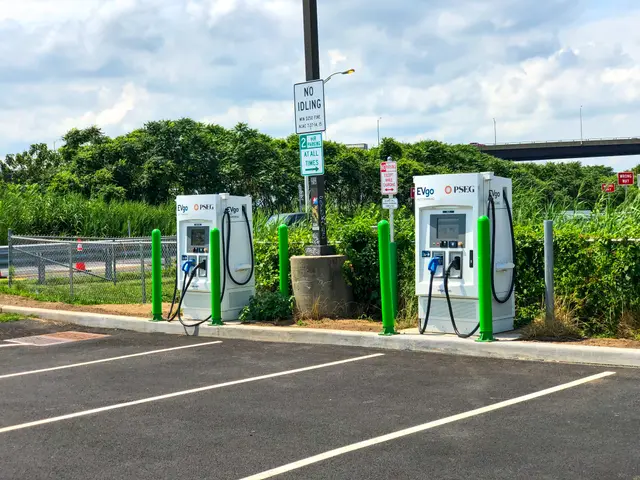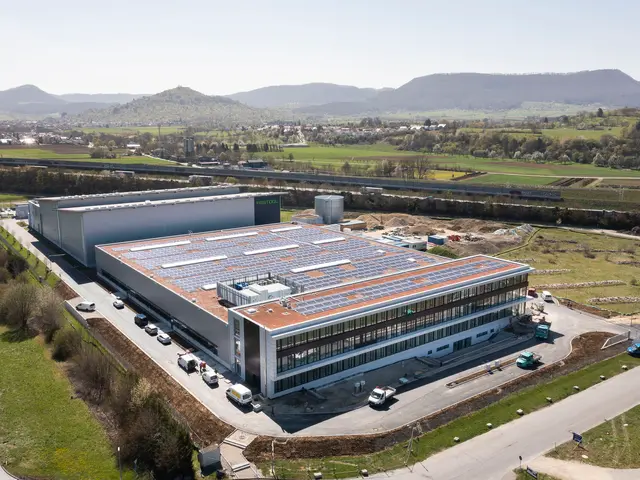Data protection through minimization of collected data is the foreseeable direction for privacy safeguards.
Hey there! Let's dive into the world of data minimization, a key concept for businesses and individuals in this digital age.
Y'know the drill, here's a quick summary:
- Data minimization is about only gathering the data that's absolutely essential for a specific purpose. It reduces the risk of data breaches and protects user privacy.
- As users become smarter about their info, businesses focusing on data minimization can gain a competitive edge and build trust.
Alrighty then, let's get started!
What's This Data Minimization Thing All About?
Data minimization is all about ensuring companies only collect and keep the data that they absolutely need for their purposes. In simpler terms, if data ain't necessary, don't collect it! This approach helps decrease the risk of data breaches, protects user privacy, and makes things more straightforward for everyone.
By law, data protection regulations like GDPR say that personal data should be "adequate, relevant, and limited." So, companies should only collect, process, and retain data if it's necessary for their intended purpose and no more!
Concerned About Your Data Being Misused?
Yup, many folks are. With the rise of internet users, lots of personal data is being created, and they're worried about how it might be used, shared without permission, or misused. Here are some common concerns:
- Lack of Transparency: Many companies collect data without being upfront about why they need it or what they plan to do with it.
- Third-Party Access: Folks worry about their privacy when companies share personal information with third parties without their consent or authorization.
- Security: Data breaches are a huge concern, as they expose users' sensitive data.
- Control: Many platforms give users little control over their personal data.
- Data Profiling: Companies build customer avatars, profiles, or personas using personal data. This might lead to discrimination or manipulation.
- Data Monetization: Folks are hurt when their personal data is being sold for profit without proper consent or compensation.
Core Principles of Data Minimization
Fear not! Data minimization helps address these concerns by guiding companies to collect, use, and store data responsibly. Here are its key principles:
- Purpose Limitation: Companies should only gather essential data for their stated purposes.
- Data Accuracy: The collected data should be accurate, complete, and up-to-date.
- Limiting Use: Data should only be used for its intended purpose.
- Retention Limitation: Information should be kept only for the time necessary to fulfill the intended purpose.
- Data Security: Robust security measures are crucial to protect personal information from unauthorized access, disclosure, alteration, or destruction.
So, Why's Data Minimization Important?
collecting every piece of information about you ain't always a good thing. Here are a few reasons why:
- Protects Privacy: By collecting less data, companies lower the risk of privacy concerns.
- Reduces Security Risks: Less data means fewer targets for hackers.
- Saves Money: Companies can save by cutting costs on data storage, processing, and security measures.
- Keeps Data Quality High: It's easier to keep accurate and organized data when you're only handling what's necessary.
- Improves User Experience: Fewer steps for users equals a smoother, less stressful experience.
- Streamlines Compliance: It's easier to comply with laws when you're collecting, processing, and storing less data.
The Role of Encryption in Data Minimization
Encryption technology plays a key role in data minimization by securing sensitive data from unauthorized access, disclosure, alteration, or destruction. Here are a few benefits:
- Anonymization: Encryption can anonymize data, making it unintelligible to humans while still interpretable by computers.
- Data Protection: Encrypted data is unreadable to unauthorized users, making it useless in the event of a breach.
- Protection Against Misuse of Access: If there's a data breach due to employee misuse or unauthorized access, encrypted data can reduce the potential damage.
- Secure Data Transfer: Encrypting data before transfer and decrypting it afterward protects sensitive information during transmission.
Use Cases of Data Minimization Practices
From transportation to healthcare, data minimization is important across many sectors. Here are a few examples:
- Transportation: Companies should only collect essential data like names, contact information, and passport details for flight bookings.
- Healthcare: During pandemics, healthcare systems may need to screen applicants. Afterward, it's crucial to securely delete their data to protect their privacy.
- Loyalty Programs: Companies should only collect transaction histories for their loyalty programs, not personal information like names or addresses unless necessary.
- Marketing: Companies should clearly explain the intended use of customer data and provide them with the option to opt-out if they wish.
- Employee Records: Companies should securely delete non-essential employee data after a set period to minimize the risk of data breaches.
The Future of Privacy
As technology continues to evolve, data minimization will play a vital role in protecting privacy. With regulations like GDPR and CPRA shaping privacy standards, the future lies in collecting less data, ensuring more privacy, and building trust in digital interactions.
New technologies like user-centric digital identification are also providing users more control over their data, allowing them to share personal information only when necessary. This shift towards greater privacy is what makes data minimization the future.
That's a wrap! By focusing on data minimization, you can protect your privacy, streamline compliance processes, save costs, build trust, and improve operational efficiency. So go on, embrace data minimization and take charge of your digital privacy! 🕺💻🎉🙅♂️🙅♀️🎈🌟🚀🔥🎆🌟😍😍😍
- Incorporating data minimization principles into home-and-garden smart devices helps ensure that only essential data is collected to enhance their functionality, thereby reducing privacy concerns and protecting user information.
- Adopting sustainable living practices, such as reducing energy consumption, can be facilitated through technology solutions that prioritize data minimization to minimize environmental impact and promote energy efficiency.








